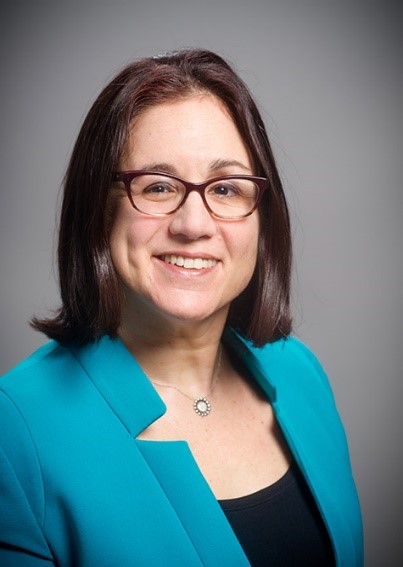In recent years, issues affecting patients with sickle cell disease (SCD) have become a key focus of ASH’s advocacy work in Washington, DC. The Society continuously works with federal agencies and the U.S. Congress to encourage expansion of government activities in SCD research, training, and services.
Late last year, in the final days of the 115th Congress, ASH achieved a major advocacy victory with the Sickle Cell Disease and Other Heritable Blood Disorders Research, Surveillance, Prevention, and Treatment Act of 2018 (P.L. 115-327) being signed into law. The law reauthorizes SCD prevention and treatment grants awarded by the Health Resources and Services Administration (HRSA) and authorizes the federal government to award data collection grants via the Centers for Disease Control and Prevention (CDC). This achievement could not have been possible without the help of Society members who called and wrote letters to their elected officials. The Hematologist spoke with one of the Society’s most vocal SCD advocates, Dr. Julie Kanter, to discuss her success speaking out on behalf of patients with SCD.
Dr. Kanter, a hematologist at the University of Alabama in Birmingham and a member of the ASH Committee on Government Affairs and the ASH Grassroots Network, recently played a key role in the Society’s efforts to pass federal legislation to advance care for patients with SCD.
Dr. Kanter first became involved in advocacy to speak out on behalf of her patients. “My research and clinical focus is in SCD. I don’t think you can focus on [SCD] and not realize the importance of advocacy,” she said. “As a rare disease with multiple health disparities it is just as important that we advocate for patients’ rights as it is that we care for these individuals.”
Dr. Kanter expanded her role in advocacy in 2015 after participating in the ASH Advocacy Leadership Institute (ALI), a two-day program in Washington, DC, that allows ASH members to learn how to be effective hematology advocates. “ALI taught me a lot about how to advocate for patients effectively, and I continue to work with government figures and participate in congressional briefings,” she said. “I think ASH has made me a much better advocate.”
Before moving to Alabama earlier this year, Dr. Kanter lived in South Carolina where she fostered a strong working relationship with one of the sponsors of the Sickle Cell Disease and Other Heritable Blood Disorders Research, Surveillance, Prevention, and Treatment Act of 2018, Senator Tim Scott (R-SC). “I never had the experience of working closely with the congressional delegation in my state before coming to South Carolina,” explained Dr. Kanter. However, “collaboration with ASH and my university’s government relations sponsor were instrumental in ensuring I was introduced to the right people and kept important legislation in front of them.”
Dr. Kanter reached out to the senator’s office regularly, offering to serve as an expert for the senator and his staff on issues related to health care and SCD. “I frequently communicated with Senator Scott and his staff and continued to keep in touch with [members of the senator’s] staff even if they moved on to other offices,” she said. “It took multiple meetings and ongoing presence, but it was effective in conveying what was important.” Her efforts eventually led to Senator Scott agreeing to introduce the abovementioned SCD legislation, along with Senator Cory Booker (D-NJ). “It is one of the few times I really felt that our government worked the way it should,” Dr. Kanter said.
Since moving to Alabama, Dr. Kanter has wasted no time in introducing herself to the state’s two senators and her new representative. “I went to meet the congressional delegation as soon as possible after moving to Alabama,” she recalled. “I think it is important that they understand the work I am trying to do for our patients and the population in general.”
Dr. Kanter plans to meet with her new state legislative delegation as well. While usually less well-known than their federal counterparts, state-level legislators still hold considerable sway over laws that affect patients and hematology research and practice.
Are you interested in becoming more involved in advocacy, either in Washington or in your home state? Start by joining the ASH Grassroots Network to receive regular updates and information about how to contact your members of Congress. Visit the ASH Advocacy Center at www.hematology.org/advocacywww.hematology.org/advocacy to learn more.

